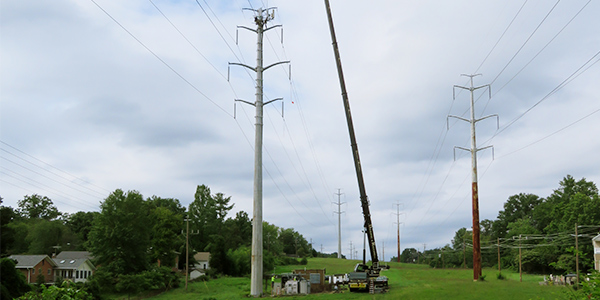More than a dozen load-side stakeholders on Thursday asked FERC Accepts PJM TOs’ End-of-life Revisions.)
The order represents a “fundamental and unlawful shift in transmission planning responsibility from the regional transmission organization, PJM, to the PJM Transmission Owners,” said consumer advocates for Delaware, D.C., Indiana, New Jersey, Ohio and West Virginia, who joined American Municipal Power, AMP Transmission, Blue Ridge Power Agency, LS Power, Old Dominion Electric Cooperative, the PJM Industrial Customer Coalition and the Public Power Association of New Jersey in filing one challenge.
They said the order is improper because it gives the TOs unilateral authority to propose revisions related to transmission planning, gives them veto authority over future planning methodologies, restricts PJM’s role as the regional planner and reduces transparency and the rights of other stakeholders.
“Not only is the order’s decision to accept the TO proposal not supported by substantial evidence, the TO proposal is contrary to the plain language of the governing documents upon which it is based,” they said. “The Aug. 11 order fails to reconcile the TO proposal’s conflicts with regional transmission planning protocols and procedures established in the PJM Operating Agreement.”
The New Jersey Board of Public Utilities also filed a challenge saying the order violates the transparency principles of Order 890 and ignores cost concerns over “unchecked transmission owner investment.”
“After transmission spending remained between approximately $1.7 billion and $3.7 billion from 2005 to 2009, it rose to approximately $8 billion in 2018. Transmission owners invested approximately $69.6 billion in baseline and supplemental projects from 2005 through 2019,” the BPU said. “New Jersey has been particularly hard hit. For example, over a third of PJM’s total $55.6 billion in transmission between 2015 and 2019 occurred in New Jersey.”
The TOs had proposed to identify and include asset-management projects within the existing planning procedures of Tariff Attachment M-3 and to include procedures for the identification and planning for EOL needs of transmission lines 100 kV and above. They voted in June to approve a Federal Power Act Section 205 filing of the proposed amendments.
Stakeholders challenging the filing asserted that the TOs do not have “exclusive filing rights” in regard to EOL projects and that PJM members maintain rights under the OA to also make filings related to EOL projects. A competing, joint stakeholder proposal is still pending before FERC (ER20-2308). (See PJM Files EOL Proposal over TO Protest.)





